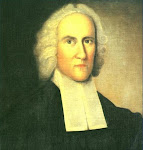New York Times columnist Ross Douthat noted in his December 21 piece (“Heaven and Nature,” accessible at www.nytimes.com) that Pantheism is the worldview that underlies the new hit movie Avatar, as well as most of the recent Disney animated films (Lion King, Pocahontas) and classic films like Star Wars. Pantheism, which more technically is called Panentheism, is the idea that nature is god and god is nature. Panentheists draw no distinction between their gods and the natural world, seeing them in continuity with one another. The gods are all a part of the system of the material universe, and there exists nothing outside of that system.
What Douthat helpfully makes clear is that Panentheism as a worldview can offer no hope to human beings. It assumes an incredibly naïve view of nature as, in the words of the movie The Lion King, a “circle of life.” In fact nature is a circle of violence and death. There is no more violent place in the world than one of our local forest preserves, where violence on an incredible scale takes place every day. It is clear to anyone willing to see the truth that nature is out of balance and that something has gone terribly wrong with the natural order. Because in the Panentheistic worldview there is nothing outside of that order, however, there is no hope in Panentheism for the rescue of the natural world or the human beings who inhabit it.
The biblical worldview could not be more different from Panentheism. It begins in Genesis 1:1 with an eternally pre-existing Creator who exists outside the universe and who made all material things. The material universe is not a part of God, and he is not a part of it. God did not create out of himself but rather out of nothing (Hebrews 11:3). God is thus the great Other.
Furthermore, the Bible teaches, this natural world is in disorder because of human sin, as described in Genesis 3 and Romans 1. We have corrupted God’s perfect creation and thrown it into disorder with our deliberate rebellion against God’s good and loving moral law that he has written on our hearts (Romans 2:15; 3:23). However, because God is outside the universe, and because he is perfectly holy, he is able to rescue us from ourselves and our sin. And the wonderful good news is that is precisely what the Lord has done. The eternal Son of God became flesh (John 1:14) in order to live the sinless life we cannot live and to die on the cross to pay the penalty for the sins of all who, by God’s grace, would trust in Jesus Christ alone for our salvation.
As Ross Douthat explains, nature can offer us no ultimate hope. Only the biblical worldview can do that. Only in the Word-become-flesh is there hope to escape the tragedy we have made of God’s universe and of our lives. But in Jesus is the greatest and deepest and truest hope of all. “Thanks be to God for his inexpressible gift!” (2 Corinthians 9:15).

No comments:
Post a Comment